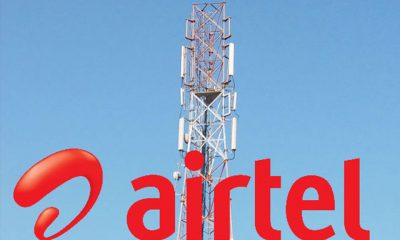Globacom has launched its Fourth Generation Long Term Evolution Advanced network (4G-LTE Advanced) with more than 4,000 LTE Advanced sites planned for rollout in major cities across Nigeria to ensure nationwide coverage of the network.
This will make Glo stand out in the 4G broadband space in Nigeria. The simultaneous implementation of the service in major cities nationwide is anticipated to massively boost economic and commercial activity as well as increase professional, educational, and business productivity.
The Glo LTE Advanced is the power of three data networks combined into one, according to Globacom. The company stated that “It is faster, stronger, and better,” and went on to describe the procedure for how new and existing customers can connect to the network.
“It is a simple process. For those who already have 4G SIMs, they will be able to enjoy the Glo LTE Advanced service. But for those who do not have the 4G SIMs, they first need to upgrade their SIM cards to USIM (4G SIM). The upgrade process is also simple, as all you require is a SIM Swap, which takes two minutes. The customer also needs a device that is 4G-enabled. Then, you will experience seamless and super-fast mobile Internet services on the Glo network,” the network disclosed. It urged subscribers to visit the nearest Gloworld shop to connect to the Glo 4G LTE Advanced and enjoy the boundless opportunities offered by the advanced and superior technology.
The demand for bandwidth and high speed capabilities is rising along with the steady expansion of smart devices in Nigeria as users share, download, and upload more films, music, and documents and utilize mobile applications that use a lot of bandwidth. These subscribers’ experiences will be improved by having access to inexpensive 4G LTE Advanced technology. Glo has also acquired and added 4G spectrum on the 2.6GHz band to significantly improve capacity and quality.
The company described the Glo 4G LTE Advanced as ‘transformational’ because it will have a big impact on people who use a lot of data as well as government and corporate organizations like banks, oil and gas companies, academic and health institutions, which depend largely on reliable data connection for their operations.
Globacom also stated that “our subscribers today already enjoy super fast music, video and movie content downloads. They are also streaming content on their phones and other devices. But the new Glo 4G LTE Advanced network offers subscribers a significantly improved experience. The video and voice quality in video calls on different applications like Facebook Messenger, WhatsApp, Viber etc is a lot clearer while the picture quality is crispier, and the transmission is faster”.
The company also affirmed in the statement that the 4G LTE Advanced will also enable optimum performance for use in a variety of other life-enhancing cases such as telemedicine, e-agriculture, 3D Games, etc.

 Cover Story3 months ago
Cover Story3 months ago
 Global News3 months ago
Global News3 months ago
 IT in Banking3 months ago
IT in Banking3 months ago
 Training and e-Learning3 months ago
Training and e-Learning3 months ago